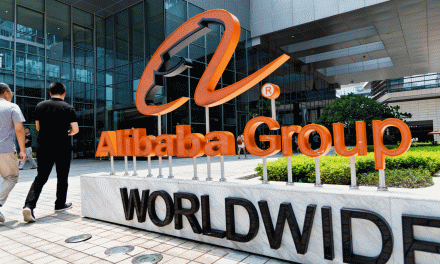
Review of the Year: Global slowdown hits express industry in 2008
After a good start to 2008, the international express industry has been hit by a dramatic decline in recent months as the economic environment has worsened. This ‘Review of the Year’ looks at how the market leaders have developed during 2008 and how they are responding to the slowdown in business.
2008 has proven to be a turbulent year for the international express industry, and the outlook for 2009 remains highly uncertain. In the first half of the year, oil prices skyrocketed and drove up jet fuel and diesel prices to record levels. The macro-economic climate worsened through the year, with the US slowdown spreading into Europe and Asia. The international financial crisis that broke out in September then hit business significantly. Few people are currently making firm forecasts for next year.
Major market trends during 2008 included a clear demand-side shift from premium express services to cheaper economy services along with a more general logistics move from air cargo to ocean freight transportation. In response, the four integrators focused strongly on broadening their product portfolios, particularly with new economy or deferred services. Until recently, emerging markets such as China and India continued to be the main express growth drivers while the US and European economies generated only low growth.
Profits drop as demand weakens and costs rise
The four global integrators have all seen their financial results worsen during the year as a result of these macro-economic factors. In general terms, DHL, UPS, FedEx and TNT have recorded moderate revenue growth, largely thanks to positive effects from fuel surcharges. But their operating profits have declined due to high fuel costs in the first half of the year, the downtrading from higher-margin express services, and lower volumes in more recent months.
DHL Express results showed a clear downward trend during the year due to the slowing world economy but mostly on account of the high US losses. DHL Express ended Q1 with a 32.3% drop in EBIT on revenues up 1%. In Q2, DHL Express increased revenue by 3% but its reported EBIT dropped 52%. In Q3, DHL Express reported an EBIT loss of €2 million compared to last year’s €69 million profit, while revenue was up 3.3%. Over the first nine months of 2008, DHL Express increased revenues by 2.4% while EBIT dropped by 69.7% to €50 million. Excluding the USA, however, DHL Express nine-month EBIT rose by 11%, revenues grew 7.3% and volumes rose by more than 4%.
UPS started 2008 with a 9.4% drop in adjusted Q1 profits (due to one-off charges) although this was a 9.9% unadjusted rise. Revenues rose by 6.5% despite flat package volumes. In Q2, UPS profits further dropped on rising fuel costs and the weakening US economy. Revenues increased 6.7% but the operating profit fell 18.1%. In the third quarter, UPS recorded again lower profits and a volume drop. Group revenues increased 7.4% while EBIT fell 7%. Over the first nine months of 2008, UPS increased revenues by 6.9% but EBIT declined 5.2%.
In Q1, TNT Express revenues increased 3.3% but EBIT declined 18.5% due to a combination of one-off effects. In the second quarter, express revenues increased by 10.7% and EBIT improved 5.3%, but air volume growth dropped sharply in June. In the third quarter, express revenues rose by 2.3% but EBIT fell 23.8% following a 6.4% drop in International Express volumes. Over the first nine months, TNT Express reported 7.7% revenue growth (at constant exchange rates) and a 10% drop in EBIT to €370 million.
TNT volumes were dramatically hit by the declining market in the second half of the year. On December 4, TNT announced it aims to save between €270 million and €330 million during 2009-2010, including downsizing European air operations and seeking more efficient road operations. The European air fleet, previously comprising 40 aircraft flying to 62 destinations within Europe, will be downsized to 34 planes serving 53 airports next year.
FedEx, whose financial year runs June-May, had express revenue growth of 9% in the fourth quarter (March-May) but express EBIT slumped 31% due to a 14% rise in costs, driven by higher fuel costs. In Q1, 2008/2009 (June – August), FedEx Express increased revenues by 9% but costs rose 13%, driven by a 65% jump in fuel costs. Its operating profit dropped 34% to $345 million as a result. In Q2 (September-November), FedEx Express increased revenues by 1% and improved its operating profit by 2%, largely due to a positive fuel surcharge effect. However, its US domestic express package volume declined 8%, the International Priority average daily package volume declined 7% and international domestic volumes were flat.
On December 18, FedEx, which had already imposed a hiring freeze, reduced volume-related working hours and eliminated variable pay benefits, announced that it will cut salaries next year to save some $200 million. It is targeting overall savings of $1 billion in the current 2008/09 year. The pay cuts were seen by US analysts as a clear effort to avoid significant numbers of layoffs. It has also delayed delivery of new long-haul B777 freighters.
The two European parcel operators GLS and GeoPost/DPD (which do not release full financial results) appear to have improved their performance. GLS increased its revenues by 26.5% to £715 million in the six months ending September 30 and improved EBIT by 31% to £59 million. Excluding currency effects due to the strong euro versus the pound, underlying profit growth was 6% and revenue growth was 4.5%. GeoPost increased January-June 2008 revenues by 8.2% to €1,643 million on a like-for-like basis and achieved higher profits which were not disclosed.
DHL quits US domestic markets and invests in Europe, Asia and Latin America
Probably the most significant development in the international express industry this year was DHL’s dramatic pullout from the US domestic express market announced on 10 November 2008. This will result in thousands of job losses and reduced competition in the world’s largest express and parcel market, as well as a strategic re-focusing at DHL Express. The pullout, scheduled for 30 January 2009, follows cumulated losses and costs of some €7.5 billion ($9.5 billion) since 2003.
After the exit, DHL will remain as a much smaller international express player in the US market, and will focus on Europe and growth markets in Asia, Latin America and the rest of the world. In Europe, DHL Express grew strongly in Eastern Europe, France, Benelux and the Nordics this year. In Romania, it acquired domestic market leader Cargus for €50 million. The major development was the opening of the showcase €300 million air hub in Leipzig with a 48,000 sqm sorting centre handling 96,000 pieces per hour. It also announced a joint venture airline with Lufthansa, branded as ‘AeroLogic’, which will launch Leipzig-Asia flights in summer 2009.
In Asia Pacific, DHL achieved good organic growth, although this slowed during the second half of the year, and focused on network expansion. Its key growth markets were China and India. In Australia, DHL and New Zealand Post invested A$140 million (€85 million) in a new 50-50 joint venture named Express Couriers Australia to target the Australian domestic express market. DHL invested strongly in its Asian network this year. It opened a $110 million extension of its Central Asia air hub at Hong Kong International Airport in September and is due to open a North Asia hub at Shanghai in 2010. The air network was enhanced with the start of the transpacific partnership with Polar Air Cargo in place of former airlift suppliers Northwest Cargo and Malaysia’s Transmile.
In Latin America, DHL Express inaugurated a new $4.5 million Central America air hub at Panama City international airport which it described as the largest express hub in the region. With the new 7,711 sqm facility, DHL Express has increased its sorting capacity by more than 250% to up to 5,000 packages per hour. It also increased its presence in Mexico and Brazil. In December, CEO John Mullen reaffirmed plans to invest €200 million in Latin America during 2009 and 2010.
The major development at parent company Deutsche Post World Net was the appointment of Frank Appel as the new chairman and CEO in place of Klaus Zumwinkel who resigned over a tax evasion scandal in February. Appel moved quickly to agree a deal to sell Postbank to Deutsche Bank and end the US express losses.
TNT builds up road networks and cuts costs
During 2008, TNT maintained its focus on networks to strengthen its position in Europe and expand in emerging markets including China, India, Brazil and Middle East. The main strategic aim was to build up the road networks in emerging markets such as South-East Asia, Middle East, China and South America.
In Asia-Pacific, TNT successfully completed the integration and re-branding of Speedage in India and Hoau in China, and announced plans to invest €100 million in South East Asia over five years. TNT extended the Asia road network into China, opened road hubs at Bangkok and Hanoi, and added Singapore to the Asia-Europe air network. In South America, TNT plans to invest €100 million over the next 5-10 years in Brazil. Mercúrio was re-branded to TNT Mercúrio following its successful integration, and major new facilities were opened. In the Middle East, TNT opened new facilities in Dubai and extended the road network into Lebanon.
UPS and FedEx target international growth
The two US giants UPS and FedEx, whose domestic businesses have been under pressure throughout the year, are strongly focusing on their deferred business, domestic delivery and supply chain solutions with clearer ambitions for international growth via acquisitions and broader worldwide geographic focus. The focus of their international investment remains Asia, especially China, but they are also building up activities in Europe.
FedEx expands European and Asian air network
FedEx Express undertook a number of measures to expand its air network in Europe and Asia during 2008. In France, FedEx will extend its European hub at Roissy-Charles de Gaulle airport from 49,000 to 72,000 sqm to increase sorting capacity from 24,000 to 31,500 packages per hour. In Germany, FedEx broke ground on its technologically innovative new €140 million Central and Eastern European hub at Cologne/Bonn airport which will go into operation in 2010. The 50,000 sqm hub will have capacity to sort 12,000 documents and 12,000 parcels per hour. In Denmark, FedEx Express signed an agreement with Copenhagen Airports for a purpose-built 1,600 sqm cargo facility to be ready in September 2009. FedEx also strengthened its European air network with new feeder flights from Barcelona, Vienna and Budapest to Paris, and transatlantic flights to Newark.
In Asia, FedEx Express continued to invest in markets such as China, India and Vietnam. The opening of the $150 million Asia-Pacific hub at Guangzhou in southern China was delayed from December to February 2009 pending further tests. Once operating, this hub will be the largest FedEx facility outside the USA and provide direct links between China, intra-Asia flights and intercontinental services to Europe and the USA. FedEx expanded its network in Asia with new flights to Hanoi from its intra-Asia hub in the Philippines. The five times a week A310F flights expanded airlift capacity to Vietnam fivefold and cut one day off Hanoi transit times.
FedEx Express also extended its presence in Latin America with the launch of its domestic next-business-day services in Mexico, and increased its air capacity to and from the country.
UPS invests in China
UPS is heavily expanding in China, investing more than $300 million in its new air hubs at Shanghai ($125m) and Shenzhen ($180m) to increase its presence in the fast-growing market. The new China air hub at Shanghai Pudong International Airport, with capacity for 17,000 packages per hour and parallel freight handling, was opened in December. UPS also announced it will invest $180 million on a new, 89,000 sqm intra-Asia air hub at Shenzhen International Airport which will replace its current intra-Asia hub in the Philippines on opening in 2010. Elsewhere in Asia, UPS sealed a strategic sales alliance with AFL in India and bought full control of its express joint venture with Korea Express.
In Europe, UPS expanded with the acquisition of its Romanian agent, Trans Courier Service (TCS), and indicated that it is open for further acquisitions. UPS built a new healthcare facility at Roermond in the Netherlands in anticipation of growing customer demand for healthcare logistics in Europe, and also completed the integration of its hub in Tamworth, UK, this year. In Mexico, where it has 35 locations, UPS opened eight new centres and upgraded air capacity with a larger A300F instead of a B757F between Louisville and Mexico City.
European parcel operators built up brand, products and network
Europe’s two major parcel operators, GeoPost/DPD and GLS, continued to expand their businesses during the year. GeoPost’s subsidiaries in the UK and Russia re-branded to DPD, but the planned acquisition of a 52% stake in Spain’s Seur, to gain an overall 70% majority holding, was cancelled in December due to the market downturn. In Germany, DPD and B2C specialist Hermes announced talks over an in-depth partnership.
GLS continued to develop express products to complement its core deferred parcel services, extended its retail network of parcel shops to build up its B2C business and signed up Gati (India) and MNG (Turkey) as new international partners. Austrian Post continued its strategy of trying to build a European network through German subsidiary trans-o-flex and with acquisitions in Belgium, Hungary and Bosnia. In France, state rail operator SNCF spent €600 million to buy freight logistics group Geodis, one of the country’s leading express players, with the aim to create Europe’s fourth-largest transport and logistics group.
A year of two halves
In summary, 2008 was clearly a year of two halves. Business was generally good through until June (except in the USA), and the integrators maintained their expansion strategies. From the summer onwards, demand weakened considerably and the integrators responded with a range of cost-saving measures. As the year draws to a close, all four express leaders are reviewing their 2009 strategies in terms of costs and investments against a very uncertain economic background.













